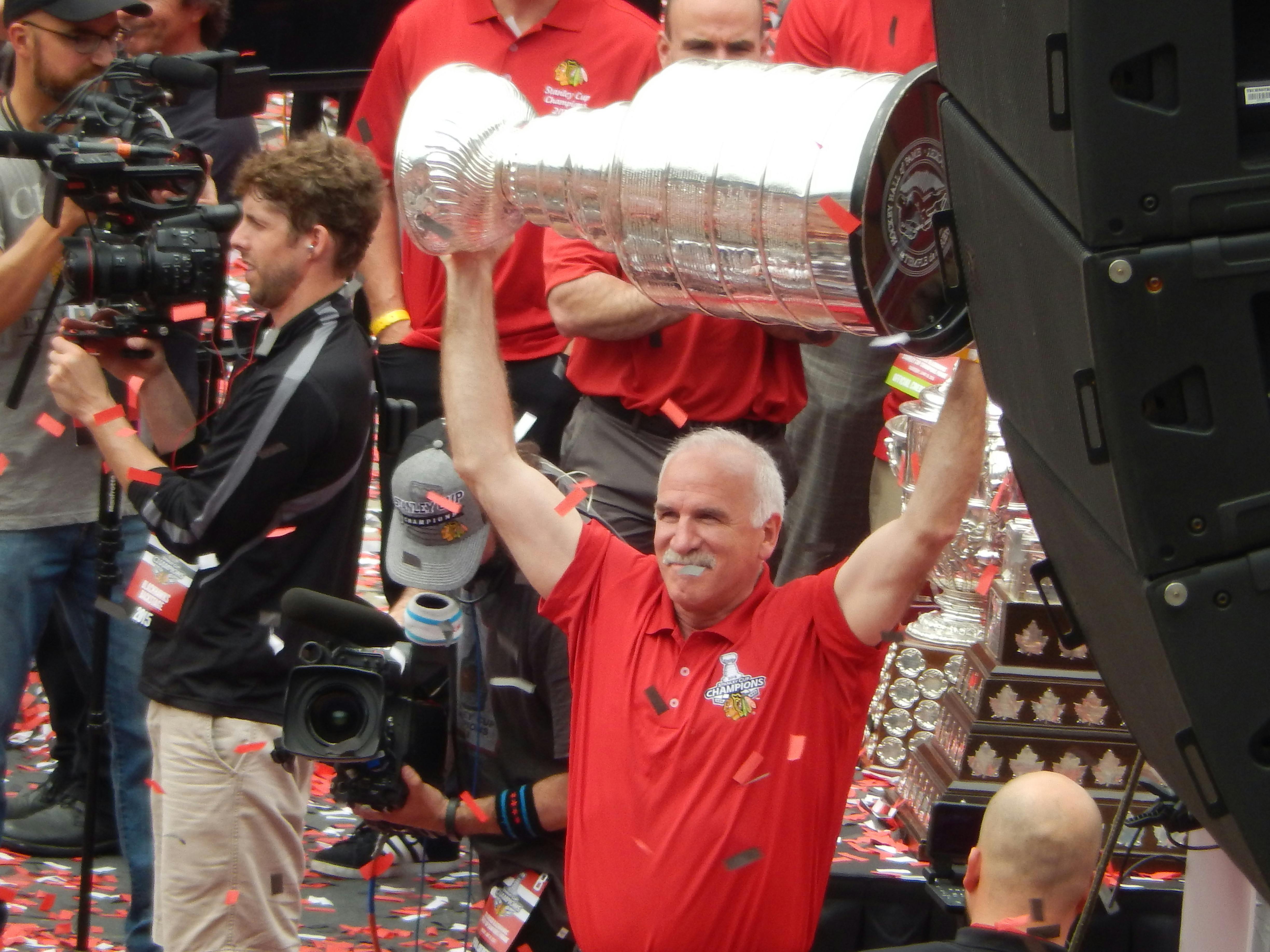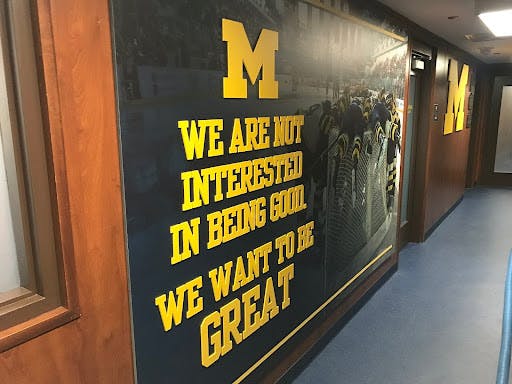Featured courses
- Complete Youth Hockey Practice Plan by Jacob Crabtree
- Zone Entry Hockey Drills: How to Teach Effective Entries by Jackson Chlebowy
- Hockey Practice Plan: Maximize Development in Every Session by Jackson Chlebowy
- Strength and Conditioning for Ice Hockey: Building the Complete Athlete by Jackson Chlebowy
- Hockey Defensive Positioning: Skills for Forwards and Defensemen by Jackson Chlebowy
- Which Hockey Position Should I Play? | Hockey Positions Guide by Jackson Chlebowy
- 3 Keys to Hockey Defense: Dominate the Defensive Zone by Jackson Chlebowy
- 4 Hockey Skating Drills for Youth Players: Building Speed, Balance, and Agility by Jackson Chlebowy
- 4 Hockey Passing Drills to Improve Team Performance: Mites to Peewees by Jackson Chlebowy
- Mastering the Hockey Forecheck: 6 Keys and Strategies by Jackson Chlebowy
- How To Coach Hockey: Creating a Winning Culture by Jackson Chlebowy
- 5 Principles of a Successful Hockey Power Play by Jackson Chlebowy
- Three Youth Hockey Shooting Drills to Score More Goals by Jackson Chlebowy
- 3 Hockey Battle Drills to Improve Compete Level and Team Chemistry by Jackson Chlebowy
- Ice Hockey Goalie Drills: Mastering the Basics by Emma Martin
- Tips and Tricks on Perfecting Your Hockey Slap Shot by Emma Martin
- 7 Effective Puck Protection Drills for Defenseman by Jacob Crabtree
- Strength and Conditioning: Tony Greco's Principles of Strength by Jacob Crabtree
- From Humble Beginnings to Highly Respected NHL Shooting Coach – A Sit-down with Tim Turk by Slava Paller
- Journey into Strength and Conditioning with NHL athletes to everyday people with Ryan Van Asten: Two time Stanley Cup Champion and Current Calgary Flames Strength and Conditioning Coach by Clarence Paller

How To Coach Hockey: Creating a Winning Culture
Every Coach wants to be successful, but what does it take to coach a winning team? Coaching is more than just drawing up plays and strategizing for the next opponent. it’s about leadership, setting expectations, and cultivating a winning mentality amongst your players and staff. Some coaches falter under the weight of responsibility and the immense pressure of leading a team. However, those who reach the pinnacle of success do so by establishing a clear vision, fostering a strong team culture, and setting unwavering standards.
Coach David Urquhart, a seasoned expert in the world of coaching, has crafted an approach that prioritizes these key elements. Coach Urquhart is a former collegiate and European hockey player turned coach after getting his master's degree in sports psychology. He has served as the head coach for McGill University, an assistant coach for the San Diego Gulls, and an assistant coach for the Serbian men's national team. In his course ‘Hockey Cultures of Excellence: What do Winning Coaches Do’, he shares his insights into the game, the importance of culture, and how to effectively implement it within a team to be successful. Through his teachings, you’ll gain valuable knowledge about how a coach’s vision can shape a team’s identity and propel them toward greatness. Let’s explore these essential coaching principles and how they contribute to building a championship-caliber team.
Setting Standards: The Foundation of Success
Every great coach understands that without clearly defined standards, a team will struggle to find consistency and cohesion. Standards serve as the building blocks for how a team will operate and interact with one another. Ultimately shaping how players/staff treat one another, practice habits, and in-game execution. These expectations extend beyond athletic performance and include individuals' work ethic, accountability, and behavior. A coach who enforces discipline ensures that players push themselves to their full potential while maintaining a sense of professionalism and respect for one another and the collective team. When a team collectively buys into these standards, they create an environment where players motivate one another to meet and exceed expectations.
What is Culture?
As Coach Urquhart explains, culture is the set of shared attitudes, values, goals, and practices that characterize an organization. It is an intangible force that defines an organization's identity and dictates how players interact, train, and compete. A successful culture does not appear overnight or implement itself. It takes consistent reinforcement and effort to cultivate and instill the desired attitudes, values, goals, and behaviors.
Creating and implementing a culture of success requires buy-in from you as a coach. It is one thing to talk about your goals and values as a coach, but if you do not act in line with what you say are your goals, values, and standards how do you expect your players and staff to buy in? Creating a winning culture starts at the top. It takes a concerted effort from team leaders to get your players and staff to buy in. Players and staff will mirror the energy and actions of their leader. If you want to instill positive characteristics, values, and goals in your players, you must be dedicated to acting in accordance with them. In other words, you can talk the talk, but you must walk the walk.
The Power of a Coach’s Vision

A coach without a vision is like a captain steering a ship without a map. A coach's Vision acts as a compass, providing direction and purpose and guiding the team toward long-term goals. The most successful coaches understand that their vision must be ambitious and attainable, inspiring their players while keeping them grounded in reality. If your vision does not come across as authentic or believable, it will be very difficult to get players to buy in or believe in you as a leader.
A well-defined vision gives athletes a better understanding of purpose, both their individual purpose and the purpose of the overall vision. It also gives athletes a better sense of team identity, who they are, and what they are striving to achieve. Whether your team's goal is to win the championship, develop young players, or instill a particular play style, a clear vision will ensure that everyone is aligned and on the same page working toward a common goal. Without a collective sense of purpose or collective effort toward the same goals, the team risks complacency or lack of motivation in the face of adversity.
Every player needs to be rowing the boat in the same direction for the team to be successful. Players need to individually believe in the vision before it can effectively guide them to the desired destination. Your vision as a coach should not need to be strictly intangible, there must be physical manifestations of your culture and vision present around your team. Photos, slogans, and diagrams are a great way to remind players of the direction the ship is meant to be sailing.

A good example of this comes from legendary NBA head Coach Steve Kerr, who emphasizes and reinforces the importance of “Joy” in their locker room. As a part of his vision, he finds it important that players play with a sense of joy and almost child-like excitement. This value can be seen on the court with how much fun the warriors seem to be having when they play. Steph Curry is always smiling and celebrating whether they're playing a regular season game or the NBA final. This value of “Joy” did not just come to fruition overnight, Coach Steve Kerr made a concerted effort to incorporate messaging and actions that facilitated the value of “Joy”. This theme of “Joy” is just something that is incorporated into everyday life for Kerr’s Warriors. For example, the Warrior's practice facilities are covered in photos of Warriors players smiling and celebrating on the court. They even incorporate funny clips, movie quotes, and entertaining editing to keep the players laughing and to keep things light during film sessions. For your values as a coach to become accepted by your team, they must become the norm and be incorporated into everything you do as a team.
Final Thoughts: Coaching Beyond the X’s and O’s
At its core, coaching isn’t all about strategy and game planning. It’s about leadership, vision, and culture. It is important to recognize that your influence extends beyond the playing field. As a leader, you will shape the character, mindset, and work ethic of your players. By setting high standards, fostering a winning culture, and instilling a powerful vision, a coach creates a lasting impact that will stick with their players far beyond their playing careers. Players who experience strong leadership will carry the lessons they learned with them throughout their lives.
For aspiring coaches, the path to success is clear. You must commit to a vision, uphold your standards, and build a culture that inspires excellence. With these principles in place, any coach can turn their dream of success into a reality.
